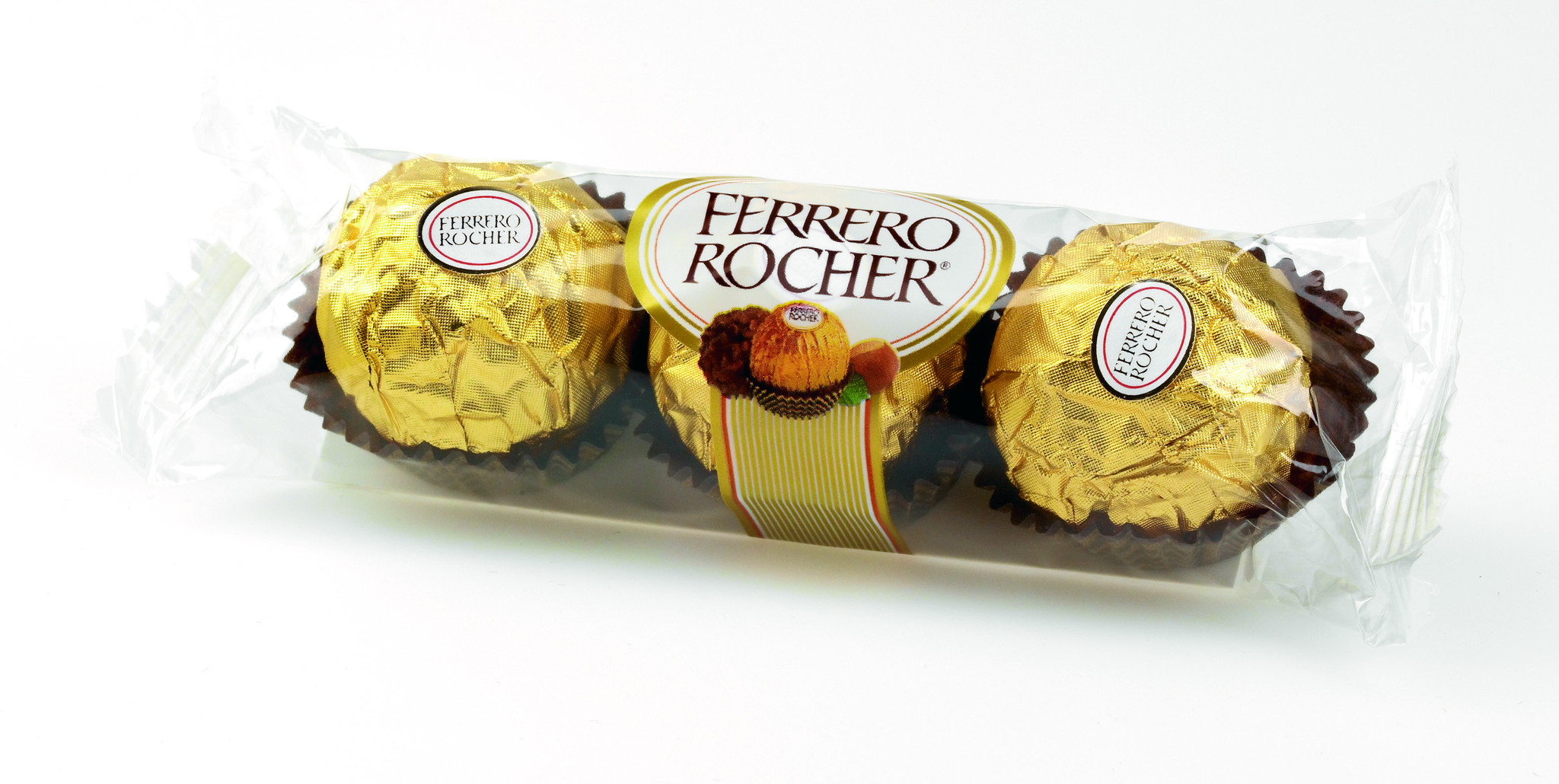On Ferrero Rocher

I always loved Ferrero Rocher because of its wonderful television ads in Britain. To immigrants in America, writes Liana Aghajanian, the foil-wrapped chocolates are a status symbol.
https://www.youtube.com/watch?v=zs7gAxsfK5UGrowing up in Culver City, California, in an apartment complex entirely occupied by Libyan-American families -- each of whom had their very own stash of Ferrero Rocher in serving bowls -- the chocolate was something Herwees says she associated with Libyan culture, because the only places she encountered it were her house, at Libyan-American weddings, or in Libya itself.
"I had this one auntie who always pulled out a Ferrero Rocher when I was there; I always knew she had Ferrero Rocher on hand," she says. "She became one of my favorite aunties for this. I think I associated it with decadence -- even now when I have it, it feels like a really special thing." The strong emotional response this particular chocolate induced in immigrant families was common. Their lives were caught up in war, violence, political turbulence, and socioeconomic inequality. As their worlds changed around them, Ferrero Rocher remained a constant, an accessible bridge to the past and present that has now become a nostalgic reminder of what life growing up in America was about for children of immigrants like me.
On the infamous UK ad (embedded above):
Its appeal, however, wasn't as universal as it seemed, and perhaps nothing encapsulated the disdain for Ferrero Rocher better than the roaring reaction to the infamous commercial known as the "Ambassador's Party," which aired in the UK in 1993.
It caused the class-conscious British public, who didn't really feel European long before Brexit came around, to gasp in horror.
I'd just entered my teens when the ad aired. I can't speak for strata of the British monoculture beyond my own, but for me its comic appeal didn't come from europhobic sneering, a collision between foreign and local frames of reference. It was in the depiction of aristocrats being smugly unaware their exclusive high-class snack was actually something anyone could afford and enjoy.
It's true that the bad dubbing adds an ambiguous humor that might feed an English bigot's laughter. But for the rest of us, Ferrero Rocher's ads served to strip the packaging's class signifiers of sincerity while pre-empting any contempt for those who might enjoy them unironically. This is why the ad is not just weirdly amusing, but one of the most effective ads of all time.
Here's another problematic fave of 1980s UK chocoloate advertising: Fry's Turkish Delight, "full of Eastern promise". It remains, to this date, the most faithful screen adaptation of Dune.